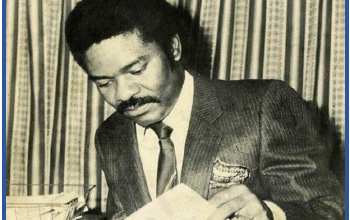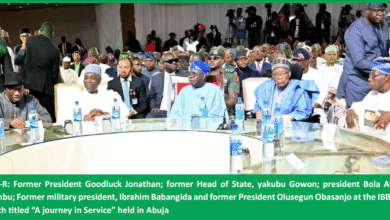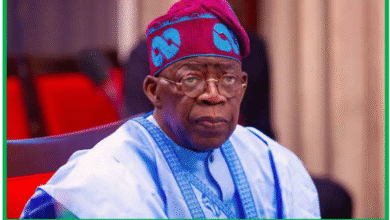Rebuilding the Giant: President Bola Tinubu’s Efforts to Reshape Nigeria’s Economy and Global Reckoning
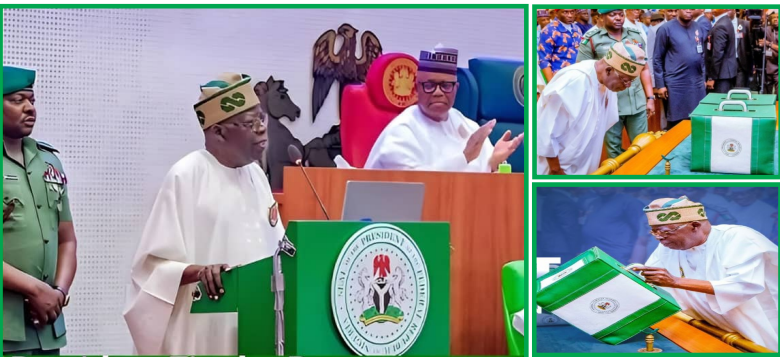
Nigeria, often referred to as the “Giant of Africa,” stands at a crossroads. With its rich cultural heritage, abundant natural resources, and dynamic population of over 200 million, the country possesses immense potential. Yet, years of economic mismanagement, corruption, and policy inconsistencies have left it grappling with high unemployment, inflation, and a weakened global standing. Enter President Bola Ahmed Tinubu, a leader known for his boldness, strategic thinking, and vision.
Since assuming office, President Bola Ahmed Tinubu has embarked on transformative economic reforms aimed at repositioning Nigeria as a formidable global power. With bold decisions and a clear vision, Tinubu has taken deliberate steps to revive the economy and build a foundation for sustainable growth.
When Tinubu assumed office in May 2023, Nigeria was facing daunting economic challenges. The nation’s debt profile had ballooned to unsustainable levels, with public debt servicing consuming a significant portion of government revenue. Unemployment rate hovered at alarming levels, particularly among the youth, who form a substantial part of the population. Additionally, the country’s over-reliance on oil revenue left it vulnerable to global price fluctuations.
Security challenges, including insurgency in the Northeast and banditry in other regions, further complicated efforts to attract foreign investment. Coupled with inadequate infrastructure, a lack of investor confidence, and systemic corruption, the economic outlook appeared grim. It was clear that Nigeria needed not just incremental changes but bold and comprehensive reforms to steer the ship in the right direction.
One of his most striking moves was the removal of the petroleum subsidy, a decades-old policy that drained public finances and enriched a few at the expense of many. By redirecting these funds, Tinubu aims to channel investments into critical sectors like healthcare, education, and infrastructure, paving the way for inclusive development.
Another significant reform was the floating of the naira, a bold departure from the tightly controlled exchange rate system. This move, though initially met with inflationary pressures, has enhanced market confidence and attracted foreign investors, creating a more competitive and transparent economic environment.
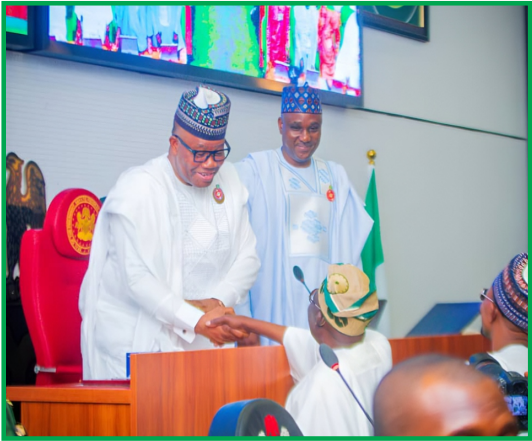
From the outset, Tinubu articulated a clear vision: to create a diversified and inclusive economy that leverages Nigeria’s human and natural resources. His administration’s economic agenda is centered on fiscal discipline, structural reforms, and strategic investments to unlock the nation’s potential. His approach combines immediate interventions to stabilize the economy with long-term strategies to ensure sustainable growth.
A critical aspect of Tinubu’s economic reform agenda is improving fiscal discipline and mobilizing revenue. Recognizing the need to reduce dependence on oil revenue, the administration has introduced measures to broaden the tax base and enhance tax compliance. The implementation of the Finance Act, which includes reforms to value-added tax (VAT) and other revenue streams, is a step in this direction.
The president has also prioritized reducing wasteful government spending. By cutting unnecessary subsidies, such as the controversial fuel subsidy, the government has redirected funds toward critical sectors like education, healthcare, and infrastructure. While the removal of the fuel subsidy initially led to public outcry due to higher fuel prices, Tinubu’s administration emphasized the long-term benefits of reinvesting the savings into the economy.
Revitalizing the Energy Sector was critical to the government. The sector has long been both a blessing and a curse. While the country is Africa’s largest oil producer, its energy infrastructure remains underdeveloped, leading to frequent power outages and a lack of access to electricity for millions. His administration has taken bold steps to address this.
One of the key initiatives is the restructuring of the Nigerian National Petroleum Corporation Limited (NNPCL) to make it more transparent and efficient. The government has also encouraged private sector participation in the energy sector, including renewable energy projects. By diversifying the energy mix and improving access to electricity, Tinubu aims to create an environment conducive to industrial growth and foreign investment.
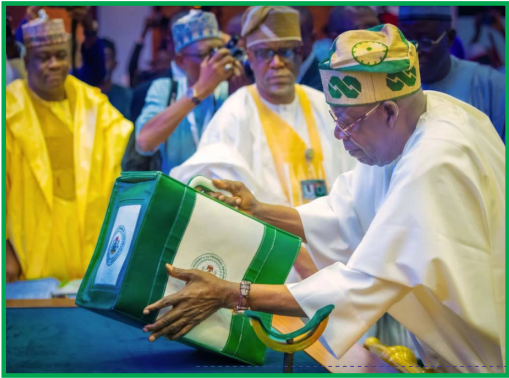
Tackling Inflation and Stabilizing the Currency
Inflation and currency instability have been persistent challenges in Nigeria. To address this, Tinubu’s administration has worked closely with the Central Bank of Nigeria (CBN) to implement monetary policies aimed at curbing inflation and stabilizing the naira. Measures such as unifying exchange rates and reducing forex dependency for imports have been introduced to strengthen the local currency.
In addition, the administration’s efforts to ensure local refining capacity has led to the repair of both the Portharcort and the Warri refineries. These now compete with the Dangote refinery to ensure sustainable fuel supply across the country, reducing the pressure on the local currency- the Naira. Also effort to boost local production, particularly in agriculture, are designed to reduce reliance on imported goods and mitigate inflationary pressures is on ground. By supporting farmers with grants, subsidies, and access to modern farming techniques, Tinubu is reviving Nigeria’s agricultural sector, which has the potential to become a major revenue generator.
Infrastructure is the backbone of any thriving economy. Tinubu’s administration has made infrastructure development a top priority, recognizing its importance in attracting investments and fostering economic growth. Key projects include the construction of modern railways, highways, and bridges to connect major cities and facilitate trade.
Additionally, the administration is investing in ports and airports to enhance Nigeria’s role as a regional trade hub. These projects not only create jobs but also improve the ease of doing business, making Nigeria a more attractive destination for both local and foreign investors.
Small and Medium Enterprises (SMEs) are the backbone of Nigeria’s economy, accounting for a significant portion of employment and economic activity are being encouraged with various initiatives to support them, including access to affordable credit, capacity-building programs, and tax incentives.
While addressing domestic economic challenges, Tinubu’s administration has also focused on enhancing Nigeria’s global standing. Recognizing the interconnectedness of today’s world, Tinubu has pursued strategic partnerships and foreign policy initiatives to position Nigeria as a key player on the global stage. This is noticeable in three areas: strengthening regional leadership, attracting foreign investment, expanding diplomatic relations.
As Africa’s most populous country and largest economy, Nigeria has a natural leadership role on the continent. Tinubu has worked to strengthen Nigeria’s ties with neighboring countries and regional organizations like the African Union (AU) and the Economic Community of West African States (ECOWAS).
Under Tinubu’s leadership, Nigeria has championed initiatives to promote regional integration, including the implementation of the African Continental Free Trade Area (AfCFTA). By facilitating trade and economic cooperation among African nations, Tinubu aims to create a more unified and prosperous continent.
A cornerstone of Tinubu’s strategy to rebuild Nigeria’s economy is attracting foreign direct investment (FDI). The administration has implemented investor-friendly policies, streamlined regulatory processes, and provided incentives to attract multinational corporations. By hosting investment summits and engaging with global business leaders, Tinubu has showcased Nigeria’s potential as a destination for investment.
Tinubu has also prioritized expanding Nigeria’s diplomatic relations. Through high-level engagements with global leaders and participation in international forums, he has sought to reposition Nigeria as a respected voice on global issues such as climate change, security, and economic development. These efforts have not only enhanced Nigeria’s image but also opened doors for international collaboration and support.
While Tinubu’s reforms have begun to yield some positive results, significant challenges remain. Public skepticism, especially regarding subsidy removal and tax reforms, underscores the need for effective communication and transparency. Additionally, addressing security concerns and ensuring political stability are crucial for sustained economic growth.
However, the opportunities are immense. With a youthful population, abundant natural resources, and a strategic geographic location, Nigeria is well-positioned to become a global economic powerhouse. Tinubu’s administration has laid the groundwork, but achieving this vision will require sustained commitment, collaboration, and innovation.
The President’s efforts to rebuild Nigeria’s economy and reposition the country as a global power are nothing short of ambitious. Through bold reforms, strategic investments, and a clear vision, he has begun to address the deep-seated challenges that have long hindered Nigeria’s progress. While the journey ahead is fraught with obstacles, Tinubu’s leadership offers a glimmer of hope for a renewed Nigeria—a nation poised to reclaim its place as the true Giant of Africa and a force to be reckoned with on the global stage.

